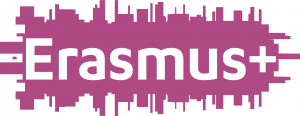The “Konstantin Preslavsky” University of Shumen started its development in 1879 with the first pedagogical course, which in 1919 was turned into a Pedagogical Institute for lower secondary teachers. In 1964 it became a Faculty branch of the Sofia University. Then, in 1971, a Higher Pedagogical Institute was established on this basis, which became the „Konstantin Preslavsky“ University of Shumen in 1995.
Nowadays, the Shumen University is a well-established and renowned university in the country and abroad, with state of the art equipment for conducting the educational process, research and artistic activity. Its majors cover the unity of the higher education, consisting of humanities, natural, mathematical, pedagogical, social and technical sciences.
Comprised of five faculties, one college and a Department for Information, Qualification and Lifelong Learning – the University provides students with the following educational degrees: professional bachelor, bachelor, master; PhD and offers specializations and additional qualifications after graduation.
The academic staff has made a significant contribution to various branches of science and is a desirable partner in the development of a number of national and international educational and scientific projects and programs.
For institutional development, the University of Shumen applies methods and approaches aimed at improving the quality of the main activities of the academic institution and the competitiveness of the members of the university, by developing the internationalization of the environment in which the main activities of the University take place, and in particular, the increase of the international staff mobility. This is a key factor for the successful acquisition and implementation of new and innovative models for work, training and good practices in different spheres, structures and areas of management on an organizational and educational level.
Taking into account the impact of global, pan-European, national and regional factors in the economic and social life, the University strives to maintain a modern outlook and a strong and creatively-oriented reputation.
In support of the European Program for Modernization and Internationalization in Higher Education, the academic community of Shumen University acknowledges that the degree of international relationship between our university and other universities is an important quality criterion. It is a key priority for us to take our rightful place in the European educational and scientific space.
In this context, the focus is on actions aimed at creating networks of joined research and educational programs by developing and strengthening strategic partnerships and agreements in the fields where Shumen University teaches its students / PhD students, as well as in the fields of professional interests of the academic staff.
The implementation and strengthening of international partnerships is one of the ways to access global knowledge, it enables the creation of new knowledge and its rendition. Engaging in joined international research and education activities also has a positive impact on the University’s authority.
Shumen University is a member and partner of:
- European University Association (EUA)
- Balkan Universities Association (BUA)
- Eurasian Universities Union (EURAS)
For Shumen University, the quality and sustainability of the partnerships for cooperation and mobility is extremely important, so our participation in Erasmus+ is an integral part of our institutional strategy. Erasmus+ helped us increase the mobility of staff and students in the Southeast European Union, as well as to participate in projects for European and international cooperation with excellent results. The opportunities that the program provides define it as an essential mechanism for promoting high academic standards, student mobility, and creating sustainable partnership models.
In selecting partners, the compatibility of educational components is the first factor. Partners are selected on the basis of academic quality and mutual strategic goals at different levels. The main structural units choose their own partners, but the general principles of the strategic partnership at all levels are the same: cooperation can be formalized with partners who have mutual interest in substantial cooperation, for example exchanges of students and employees, joined initiatives, mutual understanding of compatibility and quality of research; and preferably an interest in more than one cooperation partner along with Shumen University.
Among the partners of Shumen University are universities and institutions teaching English, Russian and Turkish. In this way, the university seeks to help students and staff with diverse language competences to seek periods of mobility in other linguistic environments, thus promoting multilingualism. The administrative support offered by our current and future partners, such as easily accessible information, accommodation and counseling is an important element in the cooperation process. They define the overall mobility experience and give an indication of the quality and reliability of the partner.
All academic programs at the university have been developed in accordance with the requirements of the Bologna Process. ECTS is the internal and the only system for allocating credits. For each academic program the learning outcomes were determined in accordance with European and national qualifications’ frameworks and with strict adherence to accreditation standards.
The International Relations Centre of Shumen University is responsible for coordinating international cooperation and provides administrative support to staff and students to seek and secure partnership and support for their academic mobility, cooperation and research.
Shumen University identifies the following as activities with upmost priority:
- optimizing and improving the coordination between academic departments, universities, international administrations in the implementation of the internationalization process;
- increasing outgoing and incoming mobility of Erasmus + students and lecturers and bilateral agreements;
- upgrading and updating of curricula and platforms, creation of new digital interactive resources and their implementation in the educational process in order to increase the quality of education, personal competences, the resolve and self-esteem of students and teachers, creative thinking and the acquisition of good practices in the sphere of research and development activities.

